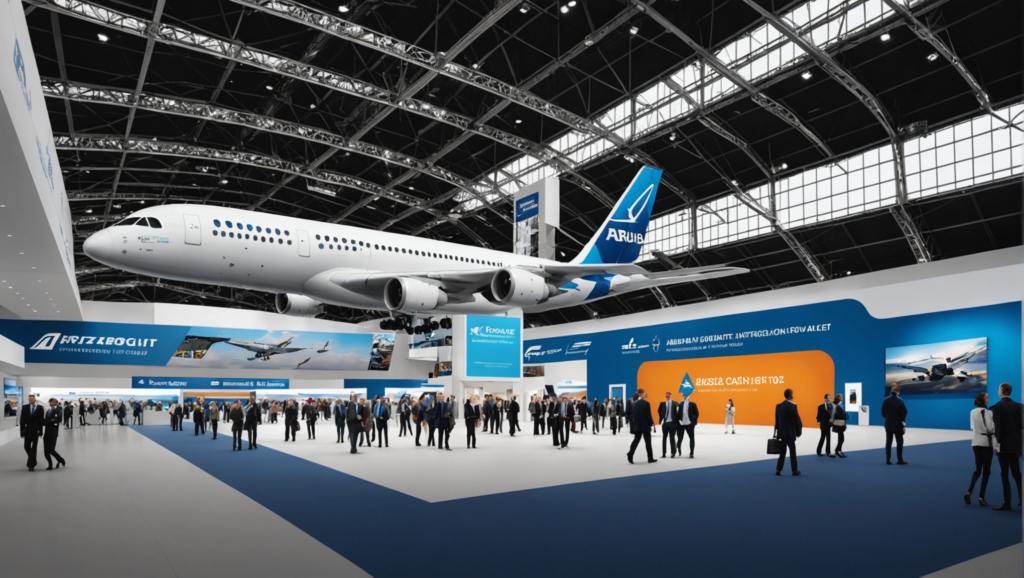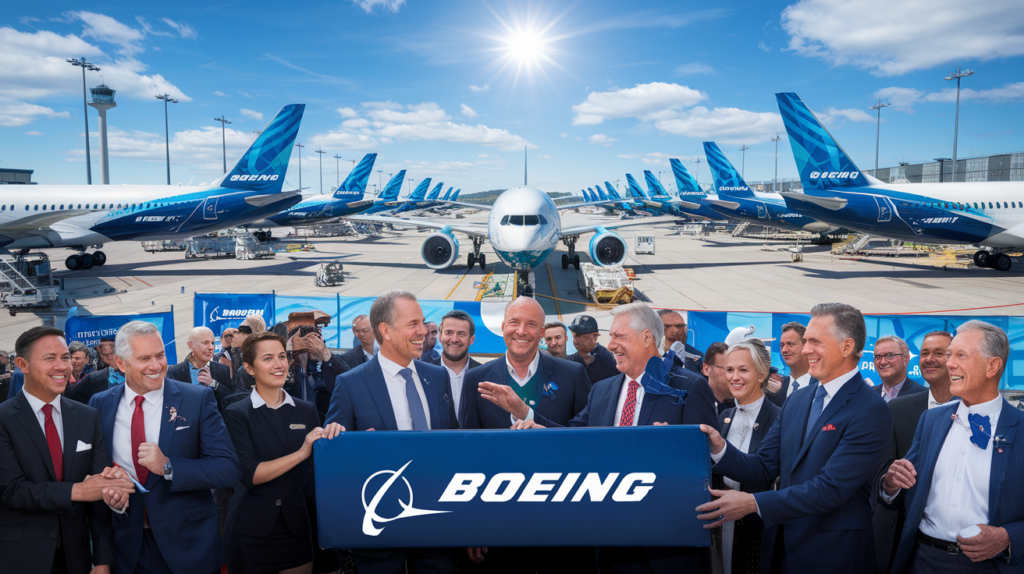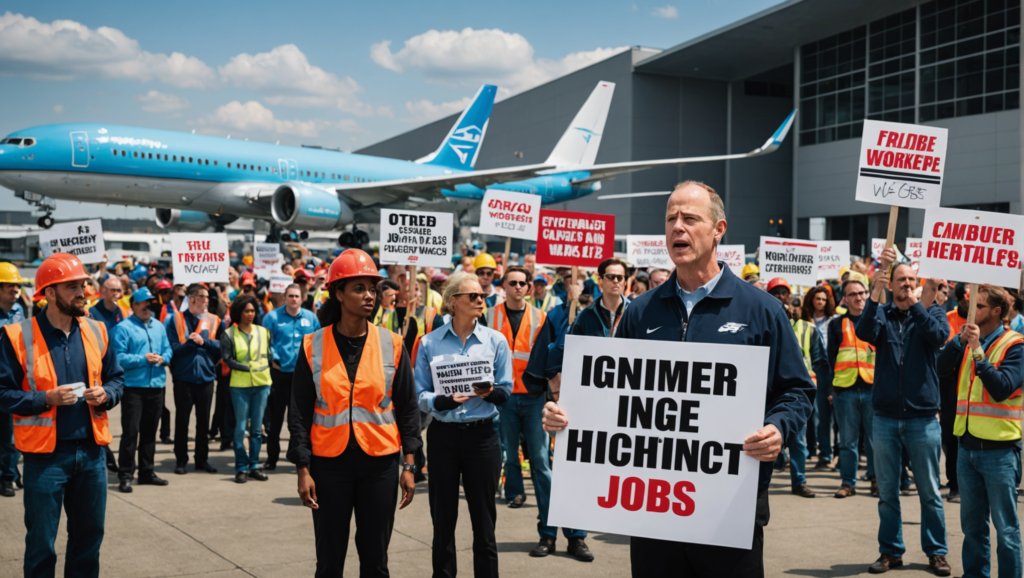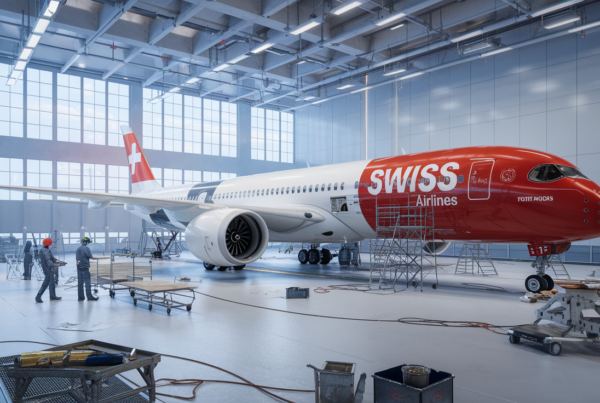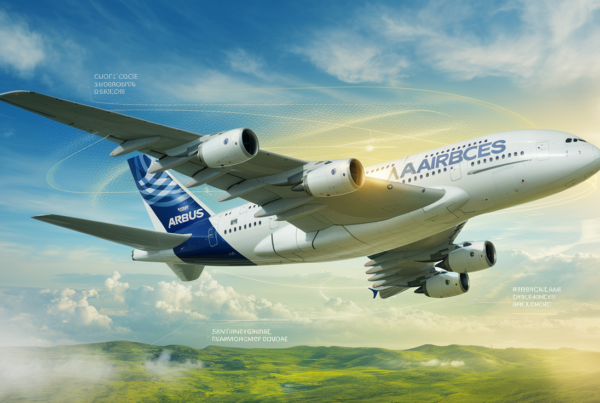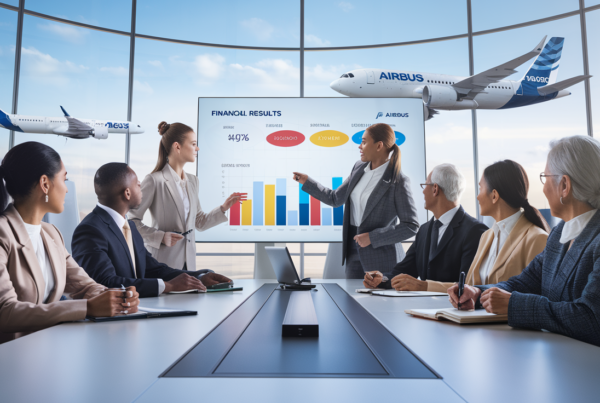Under the Trump administration, the introduction of tariffs has had a major impact on the aerospace sector. These measures have directly affected Airbus and Boeingdisrupting their supply chains and influencing competitiveness on the global market. The additional tariffs increased production costs for AirbusThis has had repercussions on international contracts. For BoeingThese policies have led to a strategic reorientation in order to maintain its position. In a tense economic context, the trade tensions exacerbated by these measures have called into question the balance and cooperation between the major players in the aeronautics industry. The repercussions are being felt, readjusting the strategies and competitiveness of the giants.
The trade policy adopted during the Trump administration has generated considerable upheaval on the international economic scene. The customs duties have been rethought and rigorously applied, affecting major companies in the aeronautics sector in particular. This context has had the effect of altering the competitive balance between Airbus and Boeing, two major players in commercial aircraft construction.
The economic context and the introduction of customs duties
The US administration's protectionist approach has led to the imposition of tariff measures aimed at reducing the trade deficit. These tariffs were seen as a means of protecting domestic industry and creating a favorable business environment for local companies, while impacting the global supply chain. In this tense climate, Airbus and Boeing found themselves at the heart of a tariff dispute whose economic fallout is still being felt today.
The impact on Airbus
For Airbus, the tariff system posed a major challenge. Faced with customs duties on some of its deliveries, the company was forced to review its pricing strategies and profit margins. The European manufacturer had to adapt its offer to remain competitive on the world market, while managing the repercussions on its supply chain and international partnerships. Fluctuating costs and uncertainty about future customs policies led Airbus to rethink its operational structure.
The impact on Boeing
Boeing, a pillar of American industry, was not spared by this protectionist wave. While the main aim of the tariff measures was to favor domestic companies, Boeing was faced with its own challenges to offset the disruption caused by tariffs on imports and exports. Competition with Airbus has thus become even fiercer, with each manufacturer seeking to take advantage of the situation to strengthen its position on the international market.
Strategic challenges and industrial adjustments
The impact of tariffs forced Airbus and Boeing to adjust their strategies in light of increased competition and an uncertain international context. The companies have invested in new technologies and redefined their business models to mitigate the negative impacts of the tariff policy. These adjustments range from redefining production chains to seeking favorable trade agreements, with the aim of maintaining their competitiveness over the long term.
Digital tools to enhance the user experience
In a constantly evolving environment, communication and information platforms are adopting strategies aimed at providing an optimized reading experience. For example our subscribers benefit from browsing without the distraction of advertising banners, guaranteeing total immersion in technical content. What's more, validation of the pseudonym based on the e-mail address ensures secure, authentic interaction between readers. For those taking part in exchanges, the instant feedback allows immediate publication, reinforcing the dynamics of a committed community.
Future developments and prospects for adaptation
The repercussions of the Trump era's tariff policy continue to be felt today. The two aerospace giants have no choice but to innovate and adapt to remain competitive. Technological evolution and openness to new international partnerships offer interesting prospects for easing trade tensions. Innovative practices and the use of advanced digital solutions, such as the consultation of practical travel tipsThese projects demonstrate our ability to turn constraints into opportunities for companies in the aeronautics sector.
Comparator impact of customs duties under the Trump
| Axis of analysis | Impact |
|---|---|
| Pricing | Increased tariff costs affecting differently Airbus and Boeing. |
| Production costs | Pressure on margins, Airbus being more sensitive to fluctuations. |
| Global demand | Variations in demand influenced by pricing measures. |
| Government support | Increased aid and subsidies, especially for Boeing. |
| Supply chain | Logistical complexity for Airbus due to restrictions. |
| Sales strategies | Adjustments to absorb or circumvent price increases. |
| Geopolitical risk | Increased exposure to international tensions impacting both players. |
| Competitiveness | Disturbed balance between Airbus and Boeing on the global market. |
| Market perception | Changes in investor image and confidence. |
| Strategic adaptation | Implementation of measures to minimize the impact of tariffs. |
On the same theme
Airbus commits to the future with an investment in LanzaJet
The 2024 Farnborough Airshow was the scene of a major announcement from aerospace giant Airbus. The company announced its commitment to the future by making a significant investment in LanzaJet. Airbus makes the...
Boeing hands over 44 new aircraft in February and regains the lead over Airbus in 2025
In February 2025, Boeing delivered 44 aircraft, once again surpassing its European rival Airbus. Since the beginning of the year, the American giant has delivered a total of 89 aircraft. This momentum marks a recovery from 2024...
Conflict at Boeing: Break in negotiations on workers' wages
Boeing's main union has rejected management's latest proposal to increase wages by 30% over four years, to end a strike that has paralyzed the company for ten days. The workers, whose wages...

